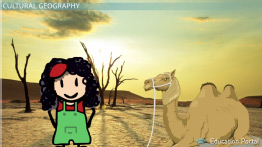Explore Social Science
Table of contents
Social Science Courses
The broad range of subjects covered by the social science disciplines means that there is no shortage of courses available in the field.
Explore our full library of social science courses:
Sociology 101: Intro to Sociology
Geography 101: Human & Cultural Geography
Political Science 101: Intro to Political Science
Criminal Justice 101: Intro to Criminal Justice
Geography: High School
Explore our full library of social science courses:
What is Social Science?
Social science is the scientific study of the economic, cultural, political, social, and psychological motivations behind why people do the things they do. These disciplines produce scientific knowledge because they are collected or recovered, given context, interpellated or crosschecked, interpreted, categorized, and tested in systematic ways rather than simply recorded as subjective observations. The social sciences are disciplines that collectively direct the scientific method toward issues of sociocultural importance.
The fields of social science are as follows:
- Linguistics — The study of human language and communication.
- Anthropology — The study of human beings and the cultures they create. This may be in the form of their material goods (archaeology), their skeletal remains (biological), their lived cultures and ethnicities (cultural), and their spoken and written languages (linguistic).
- Criminology, Criminal Justice, and Law — Criminology is the study of criminals and criminal actions, owing much of its theoretical basis to forensic research in the disciplines of psychology, sociology, and anthropology. Criminal justice and law are closely related disciplines dealing with the particulars of the law enforcement and court systems and the details of the legal system, including types of crime and the laws that define them.
- Economics — The study of how people can fulfill their basic needs, especially monetarily. By looking at the social elements of consumption, production, and distribution, the field looks to predict trends and guide people in their economic and fiscal decisions.
- Geography and Human Geography — These disciplines study the physical aspects of the natural world, the environment, and climate, as well as their relationships with economics and cultures. Human geography, in particular, tends to record group movements and interaction patterns through mapping, situating them in their environmental context.
- Political Science — The study of the social and governmental organizations that maintain order and promote a peaceful existence within diverse societies. It focuses heavily on theories and systems of government and how they gain and keep societal control, especially through law, politics, and bureaucracy.
- Psychology — The study of the mind, behavior, and personality. This is primarily done experimentally and therapeutically through research on the structure and function of the human brain, paths of emotional and intellectual development, and issues of behavior, memory, and sensation.
- Sociology — The oldest of the social sciences, sociology is the study of human relationships and how people interact. Research in the field often centers on social pressures, organization, conflict, and cohesion.
The social sciences can help people to better understand themselves, others, and society as a whole. The knowledge these fields collect and curate can help people to live more harmoniously, reduce social conflict and, with a bit of empathy, appreciate and participate in various cultures without treating each other as ''other''.




